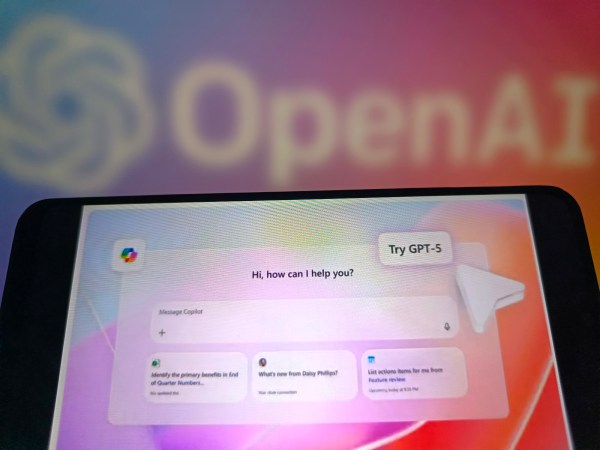In the mythos of the tech world, no figure looms larger than the “cracked coder.” To be cracked is to be absurdly talented, to master the logic of programming, to transcend time and space writing code that sings, and to do so with such speed and efficiency as to defy belief. In Silicon Valley fables, these young prodigies don’t just build great software. They break through systems, leap past obstacles, and rewrite the rules of the world. How is it that some kids can build billion-dollar startups in their dorm rooms? Because they’re cracked.
The legend isn’t entirely wrong. The modern world owes an enormous debt to the tech sector. Genius programmers have accomplished staggering things, driven economic growth, advanced science, and fundamentally changed how we live. But the myth of the cracked coder goes beyond founding tech companies. It assumes that elite coders, by virtue of their raw intellect and technical prowess, can solve any problem. And this assumption, now increasingly embedded in the thinking of major tech firms and in our government, is causing immense harm.
Luke Farritor was recently profiled by Bloomberg News for his work with Elon Musk’s Department of Government Efficiency (DOGE)—an infamous group of cracked coders who parachuted into Washington this year under the banner of efficiency, disruption, and slashing the size of the government. The profile is largely complimentary of Farritor’s intelligence, describing him as a wunderkind too smart to be contained by traditional schools. He’s best known for his work on the Vesuvius Challenge, where he used cutting-edge machine learning techniques to decode passages from ancient Roman scrolls. But Farritor’s work with DOGE is covered in a critical light, as he was a key player in the efforts to dismantle the U.S. Agency for International Development (USAID) and other agencies.
Bloomberg’s profile of Farritor was perfectly fair. In many ways it was overly sympathetic! The piece goes well out of its way to humanize Farritor and present him as a highly gifted and motivated kid who wanted to accomplish big things. But in response to an article that is moderately critical of his work at DOGE, much of the tech world lost its damn mind. Casey Handmer, a tech entrepreneur and collaborator on the Vesuvius Challenge, threw what can best be described as a hissy fit of posting about how unfair the article was. Lulu Cheng Meservey, a prominent communications executive, laughed at the piece for suggesting that Farritor was not qualified for the job of radically reshaping the government. Other tech commentators called the piece dishonorable, accused the authors of political bias, and dismissed them as jealous and aggrieved do-nothings. The tech right had a multi-day hysterical meltdown in response to an article that effectively said, “Luke Farritor sure is incredibly gifted, it’s a shame that he’s using that skill at DOGE to destroy critical government agencies.”
Why would members of the tech-right freak out like this in response to a relatively anodyne article? Because the experience at DOGE, taken seriously, destroys the myth of the cracked coder and undermines their entire worldview.
DOGE was almost a lab-perfect experiment for the idea that brilliant techies can tackle any challenge. Elon Musk claimed he could cut $2 trillion from the federal budget. All America needed was the world’s most accomplished tech billionaire and a team of boy geniuses to take power from the hapless bureaucrats and “solve” government like they solved software or rocketry.
Under this worldview, the only reason the government doesn’t run efficiently is because the cracked coders aren’t running the show. “We need super high-IQ small-government revolutionaries willing to work 80+ hours per week on unglamorous cost-cutting … Elon & Vivek will review the top 1% of applicants,” a fledgling DOGE tweeted in November 2024. Just put the cracked coders in charge and watch them go. It’s a nice idea. But in the real world, the DOGE project failed on every possible level: micro, macro, institutional, and personal.
At the micro level, DOGE misrepresented savings and frequently boasted about cost-cutting on contracts that were already expiring or almost fully spent. It would claim $8 billion in savings because its team misread a line item that actually said $8 million. It canceled research on transgenic mice because someone confused transgenic with transgender. A CBS review found just 3 percent of DOGE’s claimed savings were legitimate.
At the macro level, the DOGE cuts eventually codified by Congress totaled only $9 billion, orders of magnitude less than Musk’s boast of cutting $2 trillion. Several analyses claim that DOGE actually increased federal spending. One Senate report found that DOGE cost taxpayers more than $21 billion because of the costs of retirement packages, lost productivity, lawsuits, and re-hiring mistakenly fired employees, while an estimate from the Partnership for Public Service, an advocacy group for federal workers, put the number at $135 billion. And in the larger picture, federal expenditures haven’t declined at all, with federal spending in 2025 well ahead of 2024’s rate.
Institutionally, DOGE hasn’t even managed to convince the Republican Party that deficits are an issue worth caring about. The GOP, the supposed bastion of fiscal hawkery, passed a bill in July that will expand the deficit by trillions. America’s long-term fiscal outlook is now in its worst position in living memory.
At a personal level? Musk was run out of Washington with his tail between his legs and is now feuding with Trump and quixotically attempting to start a new third party. And the most notable public facts about the team of cracked coders Musk brought with him are that one of them was a self-declared racist, another called himself “Big Balls,” and none of them bothered to learn how the government actually works before they lit it on fire.
DOGE found vanishingly little “waste, fraud, and abuse.” What it actually accomplished was gutting American scientific research, undermining American soft power abroad, crippling critical agencies, and causing an enormous number of unnecessary deaths abroad. Credible, careful models estimate that hundreds of thousands have already died as a result of cuts to USAID, and The Lancet medical journal estimates that 14 million people could eventually die as a result of those cuts.
None of DOGE’s work was carefully considered, vetted, or understood. It’s not an exaggeration to say that at times they were effectively cutting programs and departments based on the whims and fever dreams of individual DOGE employees. USAID’s work in global health, food aid, and disease prevention was decimated not because it was wasteful, but because it was poorly understood by its would-be reformers.
The whole DOGE project was a test of the tech elite’s theory of government. Musk had the money, the clout, the world’s most vaunted coders. And he still failed catastrophically.
The shame of it all is that the government really does need to become more efficient, and it does need better tech infrastructure, and yes, it could really use some great coders in specific areas. Jennifer Pahlka, the author of Recoding America, has been yelling for years about the need for governmental efficiency to anyone who will listen.
But to reform the government, you need more than just coding skills. The kids at DOGE were responsible for decisions that affected hundreds of billions of dollars of public funds. These are life-or-death decisions. Being a public servant at this level means that your actions will have vast ramifications for real people in the real world. Depending on what you do, people could lose their jobs, children might go hungry, and pregnant mothers might lose access to life-saving medication. Important services could break down and entire sectors of the economy buckle.
Handing these decisions correctly isn’t a matter of IQ. These choices require deep subject matter knowledge of the programs in question. They require thoughtfulness, prudence, wisdom, judgment, and a strong moral compass. Most of all, they require caution and humility when one wrong step could devastate millions of people’s lives. All the technical wizardry in the world won’t help you if you lack these qualities.
That’s why sentiments like Lulu Cheng Meservey’s are so misguided. She laughs at the idea of some federal HR drone rejecting Luke Farritor’s résumé—he’s so brilliant! He’s smarter than you, nameless bureaucrat! But if you look at the results of Farritor’s work, it’s clear that the nameless bureaucrat is correct and Meservey is wrong. Farritor did not have the subject matter expertise to understand the programs and agencies he was gutting. And he certainly didn’t have the judgment, empathy, or humility needed to question what he was doing. His response to critical analysis was to post a crying baby meme with the caption: “When the corrupt elites can’t access USAID anymore.”
Farritor and his fellow DOGE wunderkinds are a collection of bright kids with no relevant experience and an insane degree of overconfidence who’ve been given access to the entirety of the federal bureaucracy and permission to cut whatever they feel like cutting. Yes, as some defenders pointed out, Farritor could have opted to make millions at some AI lab. He should have done that. It’s where his actual talents lie. Intelligence is not one-dimensional, and being good at machine learning does not mean that you have any insight into how the Department of Labor should function.
Nobody would argue that just because a painter can create a moving rendition of the Virgin Mary that he’s qualified to be pope. But that’s the logic used in the tech world to justify Musk’s DOGE. And instead of reckoning with DOGE’s failure, the right-leaning tech world is digging in deeper and repeating its mistakes.
After a weak jobs report on August 1, Trump fired the head of the Bureau of Labor Statistics (BLS). Venture capitalist and All-In podcast bro Chamath Palihapitiya immediately jumped in with loud, confident suggestions about how to fix the BLS. These suggestions betrayed total ignorance of how economic data is collected. Revisions are a normal part of the BLS process and don’t show any pattern of political bias— the same BLS chief Trump fired oversaw a negative jobs report days before the 2024 election. Fellow podcaster and Trump AI czar David Sacks joined in with disgruntled takes about how the agency’s supposed “errors” would never be tolerated in the private sector. Palihapitiya and Sacks have almost certainly never thought about the BLS for more than 15 consecutive minutes in their lives, but hey! They’re tech guys! They’re big-brain disruptors, a couple of high-IQ sharks jumping into a pool of low-IQ paper pushers. Of course they can spin up a solution in seconds.
The same instinct that led to DOGE’s failure is what causes tech commentators like Sacks and Palihapitiya to spout technobabble about the need for “RFP for real time data collection, cleansing and publishing” from an “Oracle-like data provider.” There’s no moment where they stop and think that perhaps the thousands of Ph.D. economists who’ve worked at BLS have considered this before and already implemented the best workable solution. It’s the arrogance of the deeply uncurious, the delusion that one mode of thinking is enough to understand any complex system. I’m inclined to agree with liberal commentator James Medlock who quipped, “If you put these guys on a desert island where the only way out was to say the magic words ‘I’m not sure what the answer is, let me consult someone who has worked on this problem for a long time,’ they would all starve to death.”
In startup culture, moving fast and breaking things is a virtue. Success brings fame, riches, and glory, while failure is just a sign that you’ve gained experience and learned. That attitude is helpful in the technology world, and the host of Silicon Valley startups that eventually changed the world is proof.
But when you move fast and break things in the federal government, what you’re breaking is often people’s lives. There’s an entirely different set of incentives to navigate. Running a nation isn’t a hackathon. Managing our social safety net is not a matter of coding skill. Running public health programs isn’t like building an app. These tasks require subject matter knowledge, institutional literacy, moral seriousness, and an appreciation for the human consequences of bureaucratic decisions.
Yes, government does need reform. It desperately needs better tech and better institutional efficiency. But you can’t fix a broken system by hiring teenagers with great Python skills and zero judgment. You fix those systems with people who understand the stakes, who listen to experts, who make decisions with care, caution, and humanity. The tech world has been captured by the delusion that those softer skills are fake and that cracked coders are all that’s needed to solve any institutional problem. That delusion is doing lasting harm to our country.










Please note that we at The Dispatch hold ourselves, our work, and our commenters to a higher standard than other places on the internet. We welcome comments that foster genuine debate or discussion—including comments critical of us or our work—but responses that include ad hominem attacks on fellow Dispatch members or are intended to stoke fear and anger may be moderated.
With your membership, you only have the ability to comment on The Morning Dispatch articles. Consider upgrading to join the conversation everywhere.